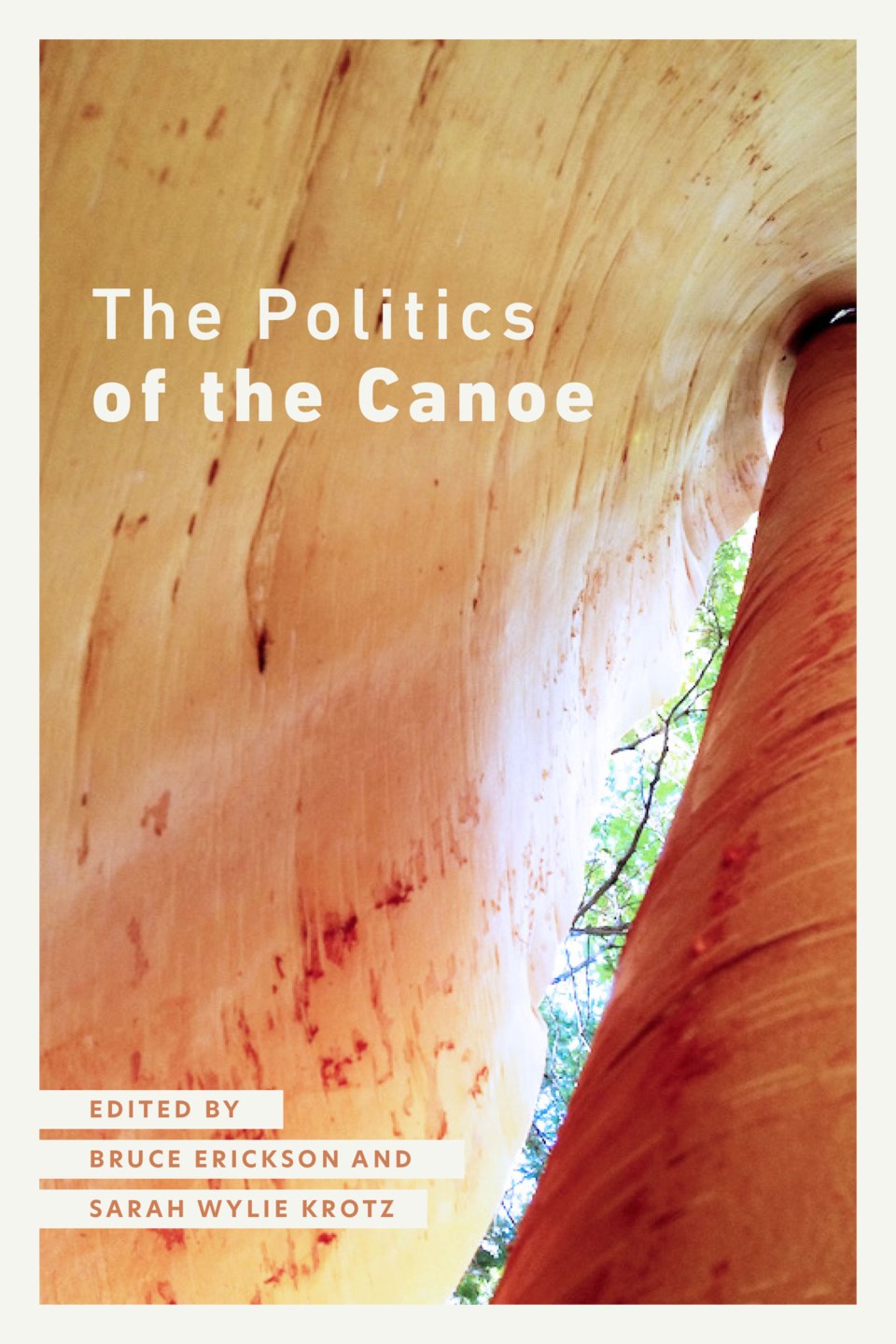The canoe, and what it means in a broader sense than a recreational vehicle is looked at in a new book; The Politics of the Canoe, edited by Bruce Erickson and Sarah Wylie Krotz.
“Popularly thought of as a recreational vehicle and one of the key ingredients of an ideal wilderness getaway, the canoe is also a political vessel,” detailed the back of the book. “A potent symbol and practice of Indigenous cultures and traditions, the canoe has also been adopted to assert conservation ideals, feminist empowerment, citizenship practices, and multicultural goals. Documenting many of these various uses, this book asserts that the canoe is not merely a matter of leisure and pleasure; it is folded into many facets of our political life.
“Taking a critical stance on the canoe, The Politics of the Canoe expands and enlarges the stories that we tell about the canoe’s relationship to, for example, colonialism, nationalism, environmentalism, and resource politics. To think about the canoe as a political vessel is to recognize how intertwined canoes are in the public life, governance, authority, social conditions, and ideologies of particular cultures, nations, and states.”
But, why did you think the book was worth writing?
“Canoes are really important agents of Indigenous culture, governance, and resurgence. They also shape local and personal histories,” Wylie Krotz told Yorkton This Week. “There is no single story that unites the chapters of this book, other than a commitment to the idea that the canoe is political in that broadest sense of the word: canoes signify an array of profoundly important relationships, affecting how people relate to each other, to the land and waterways, and to their histories.
“Canoeing can be a very thoughtful activity as well as a physical one: you have a lot of time to ruminate when you’re paddling in the bow for many miles.
“We wanted to give paddlers and scholars alike a book that gave them lots to think about, as the canoe has the potential to help us think through important relationships.
“We are both avid canoeists and we wanted to illustrate how thinking about the politics of the canoe has helped us better understand and enjoy canoeing.”
The latest book evolved from earlier efforts, said Wylie Krotz.
“The canoe is such a ubiquitous icon of Canadian identity,” she said.
“In 2013, Bruce published his book Canoe Nation, which examines the history and political power of this icon. His work on this book left him wondering about all the stories left untold -- especially the stories that run against the grain of Canada’s appropriation of the canoe as its national icon. He wanted to showcase the canoe’s multivalent meanings for many different communities both inside and outside Canada.
“I (Sarah) was a canoe tripper with Bruce many years ago, and we always shared an interest in these kinds of conversations. As an English scholar interested in the intersections between the stories we tell and the ways we engage with landscapes, I jumped at the chance to help him put this book together.”
Wylie Krotz said the book was a one with lots of preparation work ahead of putting the book together.
“It takes a lot of prep work to edit a book like this,” she said. “It came together over several years: in 2017 we put out a call for contributors who then gathered in Winnipeg (at Fort Whyte Alive) to workshop their chapters.
“That part was really interesting: everyone got to know one another and their work, and a number of wonderful new collaborations have come out of those discussions. The workshop also meant that, as different as many of these chapters are, they are all influenced by one another in some way.
“From there, the authors completed their chapters and we crafted an introduction that both links the chapters together and expands on some of the areas that weren’t addressed in the rest of the book.”
Making it all come together was challenging.
“With many contributors and stories to tell, this book had many moving parts,” offered Wylie Krotz. “It’s a lot to organize and bring that many people and perspectives together, and to write an introduction that provides enough context for all of them. But this particular challenge was also what made this project fun and interesting.”
At the same time have varied contributors are seen as the book’s greatest strength too.
“The contributors are historians, anthropologists, literary scholars, canoe builders, community leaders, and Indigenous knowledge keepers,” said Wylie Krotz. “The chapters are all interesting on their own, but read together they provide a kaleidoscopic view of a boat that many people think of as one thing.
“It’s not one thing: it is many things -- and beings -- to many different communities.”
And the editors are happy with what they have pulled together.
“The chapters are wonderful and paint a rich picture of the ways canoes are important on a number of different levels beyond simply recreation and relaxation,” said Wylie Krotz.
“We were definitely impressed with the diversity of stories that were submitted and the insight they have.”
The diversity of voice also means a varied audience for the book.
“Because of the different topics covered and the different voices within, it will appeal to all sorts,” said Wylie Krotz. “Obviously we think other paddlers will be interested in the book, but also people who are interested in North American history, environmental conservation and Indigenous knowledge.”
The book is published by the University of Manitoba Press, so it is easy to order from local booksellers. The University of Manitoba Press also has its own webstore at https://uofmpress.ca




